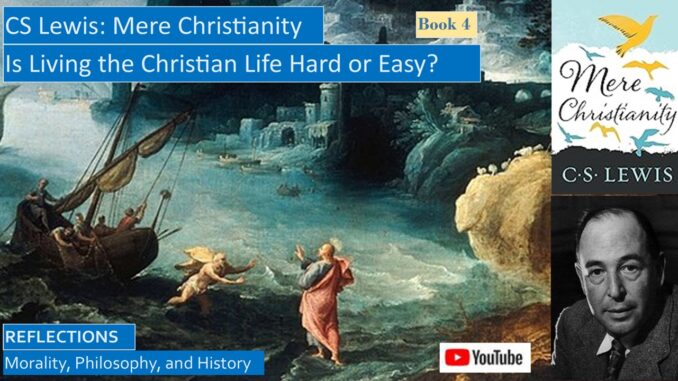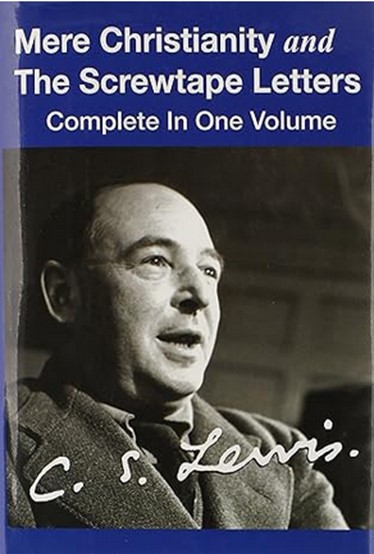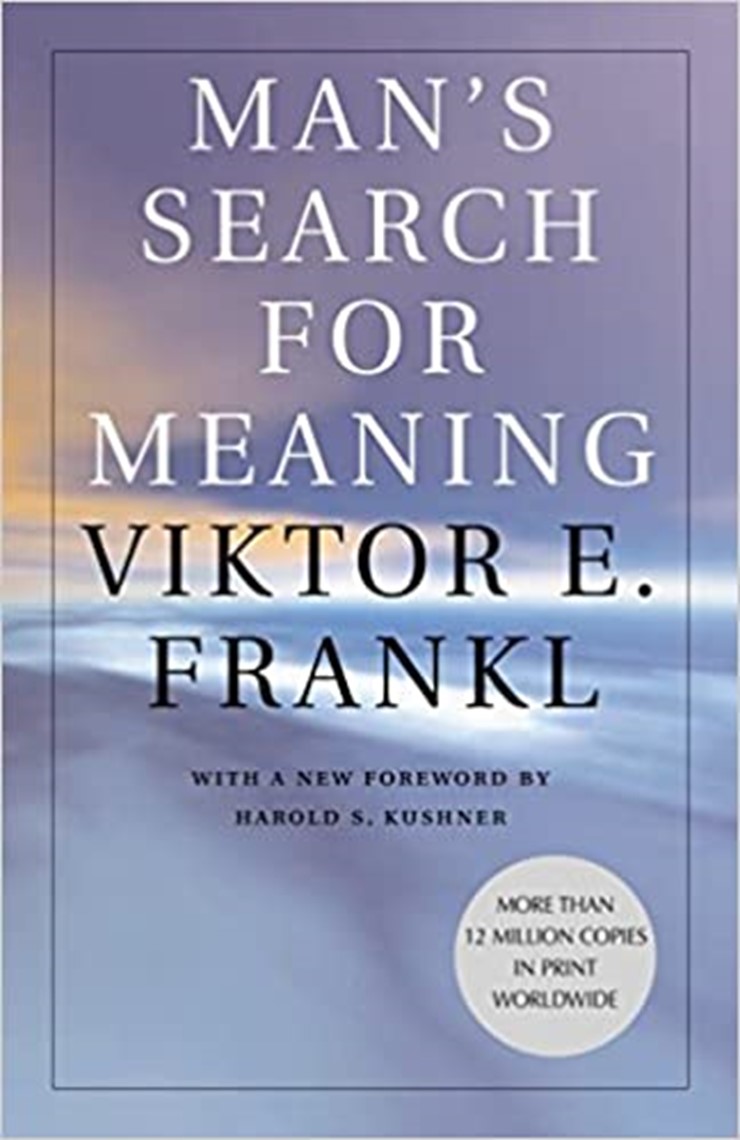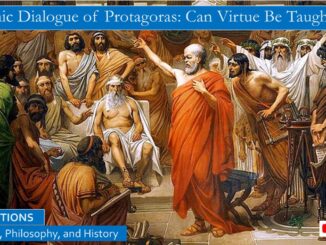
In the final chapters of CS Lewis’ Mere Christianity, he reflects: Is Christianity hard or easy?
How can Jesus expect Christians to be perfect?
Why do bad things happen to good people? Why does God permit suffering?
If Christ can change our lives, why aren’t Christians nicer?
YouTube video for this reflection: https://youtu.be/jZuWmInLh7s
Previously, we reflected on how Christians in England and Europe faced the fascist and Nazi threats during World War II, and how these experiences influenced the decrees of Vatican II. We also reflected on whether CS Lewis used St Augustine and the other Church Fathers as sources.
Facing the Nazi Menace: CS Lewis’ Mere Christianity and Viktor Frankl’s Memoirs on Auschwitz, Books 1-4
https://seekingvirtueandwisdom.com/facing-the-nazi-menace-cs-lewis-mere-christianity-and-viktor-frankls-mans-search-for-meaning/
https://youtu.be/x-9FeH9Gyng
Preparing the Way for Vatican II: CS Lewis’ Mere Christianity, Books 1-4
https://seekingvirtueandwisdom.com/preparing-the-way-for-vatican-ii-cs-lewis-mere-christianity/
https://youtu.be/udJQzmqst34
Was CS Lewis a Closet Catholic? Reflections on Mere Christianity, Books 2-4
https://seekingvirtueandwisdom.com/was-cs-lewis-a-closet-catholic-reflections-on-his-mere-christianity/
https://youtu.be/ksWomcEg8C0
Good Friday, Easter, and Trinity: CS Lewis’ Mere Christianity, Narnia, & St Augustine’s Confessions, Books 1-4
https://seekingvirtueandwisdom.com/good-friday-easter-and-trinity-cs-lewis-mere-christianity-narnia-st-augustines-confessions/
https://youtu.be/c71ygBqvPoY
Next, CS Lewis discussed the Cardinal Virtues, and Theological Virtues of Faith, Hope, and Charity, and also reflections on forgiveness, pride, and envy, and romance, Christian marriage and divorce.
Morality and the Cardinal Virtues in CS Lewis’ Mere Christianity: Prudence, Temperance, and Justice, Books 1-3
https://seekingvirtueandwisdom.com/mere-morality-and-the-cardinal-virtues-in-cs-lewis-mere-christianity-prudence-temperance-and-justice/
https://youtu.be/Djbzmeb2nc0
CS Lewis’ Mere Christianity: Forgiveness, Pride, and Envy. Can Pride Ever Be Good?, Book 3
https://seekingvirtueandwisdom.com/cs-lewis-mere-christianity-forgiveness-pride-and-envy-can-pride-ever-be-good/
https://youtu.be/Pmu6hzU5RaQ
Faith, Hope, Charity, and Love in CS Lewis’ Mere Christianity: The Theological Virtues, Book 3
https://seekingvirtueandwisdom.com/faith-hope-charity-and-love-in-cs-lewis-mere-christianity-the-theological-virtues/
https://youtu.be/avesW8whRSQ
CS Lewis’ Mere Christianity: Intimacy, Romance, Marriage, and Divorce, Books 2-3
https://seekingvirtueandwisdom.com/cs-lewis-mere-christianity-reflections-on-intimacy-romance-marriage-and-divorce/
https://youtu.be/fZcOip3WGe8
Our thumbnail depicts Jesus walking on water during a storm to the disciples’ boat. Walking on water was easy for Jesus, but hard for Peter.
IS CHRISTIANITY HARD OR EASY?
In the closing chapters of his Mere Christianity, CS Lewis asks this question: Is Christianity Hard or Easy? The answer is YES, because Christianity is both Hard, and it is easy.




CS Lewis teaches us: “Christ Himself sometimes describes the Christian way as very hard, sometimes as very easy. He exhorts us to ‘take up your Cross.’ In other words, it is like going to be beaten to death in a concentration camp. Next minute Jesus says, ‘My yoke is easy and my burden light.’ He means both,” “and both are true.”[1]
The Christian way is both harder and easier. CS Lewis teaches us: “Christ says, ‘Give me All. I don’t want so much of your time and so much of your money and so much of your work: I want you. I have not come to torment your natural self, but to kill it.”
“When Christ said, ‘Be perfect,’ He meant it. Christ meant that we must go in for the full treatment. It is hard; but the sort of compromise we are all hankering after is harder. In fact, it is impossible.”[2]
What does the command, BE PERFECT, mean? CS Lewis elaborates: “Some people seem to think this means” that Jesus is saying, “Unless you are perfect, I will not help you.” Since this is impossible, they think “our position is hopeless.” But CS Lewis thinks that Jesus meant: “The only help I will give is help to become perfect. You may want something less: but I will give you nothing less.” Basically, CS Lewis is expounding a monastic ideal that is the foundation of Catholicism and Orthodoxy.
John Climacus: First Step of the Ladder of Divine Ascent
http://www.seekingvirtueandwisdom.com/st-john-climacus-first-step-on-the-ladder-of-divine-ascent/
https://youtu.be/Fco0W3bt5GA
The Philokalia, Classics by the Eastern Church Fathers, the Love of the Beautiful
https://seekingvirtueandwisdom.com/introduction-to-the-philokalia-the-love-of-the-beautiful/
https://youtu.be/rKVBhdHWHGI
CS Lewis says this is what Christ is telling us: “Whatever suffering it may cost you in your earthly life, whatever inconceivable purification it may cost you after death, whatever it costs Me, I will never rest, nor let you rest, until you are literally perfect; until my Father can say without reservation that He is well pleased with you, as He said He was well pleased with Me. This I can do and will do. But I will not do anything less.”[3]
Is CS Lewis’ comment on purification after death a reference to a Catholic purgatory? Many Catholics view purgatory as a physical place, but the Catechism implies that it is a spiritual place, that “purgatory is the final purification of the elect.” Pope Benedict XVI teaches us that purgatory may be “simply a purification through fire in the encounter with the Lord, Judge and Savior.”[4]
But for many with many with little faith, they rarely ask Christ, How can I become more perfect? Rather, our question to Jesus is instead: What have you done for me lately? What happens to these shallow Christians when, as CS Lewis puts it, they experience “illnesses, money troubles, new kinds of temptations,” and many other problems, perhaps the sudden death of a loved one. They cry to God, Why me? Why now? What have You done to me? Often, they will choose to lose their faith, rather than realize, as CS Lewis teaches us that these troubles puts man “into situations where he will have to be very much braver, or more patient, or more loving, than he ever dreamed of being before.” “This process will be long and in parts very painful.”[5]
This question has a theological name: Theodicy, or the question: Why do bad things happen to good people? Why does God let us suffer? The fact that there are books complaining about these questions tells us more about ourselves than it tells us about God.
The Stoic assertion, and stoicism was a secondary influence to Apostolic Christianity, second only to Judaism, is that suffering exists, God does not promise to alleviate suffering. Whatever happens to us, suffering or blessings, should make our faith in God stronger rather than weaker, and we should be thankful for both, though Jesus likely does not mind if we are less enthusiastic about suffering, at least in the moments of suffering.
Major Roman Stoic Philosophers, My Favorite Maxims: Epictetus, Rufus, Seneca & Marcus Aurelius
https://seekingvirtueandwisdom.com/major-roman-stoic-philosophers-my-favorite-maxims-epictetus-rufus-seneca-marcus-aurelius/
https://youtu.be/E0qQgqGkoOE
Greek Stoic and Cynic Philosophers: My Favorite Maxims: Heraclitus, Antisthenes, Diogenes, and Zeno
https://seekingvirtueandwisdom.com/greek-stoic-and-cynic-philosophers-my-favorite-sayings/
https://youtu.be/rq3oRftjM4c
Modern Stoic Philosophers: My Favorite Maxims: Viktor Frankl, Nelson Mandela, and Others
https://seekingvirtueandwisdom.com/modern-stoic-philosophers-my-favorite-maxims-viktor-frankl-nelson-mandela-and-others/
https://youtu.be/rq3oRftjM4c
Major Roman Stoic Philosophers, My Favorite Maxims: Epictetus, Rufus, Seneca & Marcus Aurelius
https://seekingvirtueandwisdom.com/major-roman-stoic-philosophers-my-favorite-maxims-epictetus-rufus-seneca-marcus-aurelius/
https://youtu.be/E0qQgqGkoOE
WHY AREN’T CHRISTIANS OBVIOUSLY NICER?
CS Lewis wrote an entire book answering this question: The Screwtape Letters, which are an imagined correspondence between demons as they discuss how best to tempt Christians to lose their faith. When the demons fail in their efforts to tempt Christians to denounce their faith and abandon their prayers and devotion to the faith, the demons then fall back on tempting Christians to hypocrisy, to being religious for show and the praise of others in the pews, to abandon the striving to truly Love God and their neighbor, to be cruel rather than compassionate.
CS Lewis teaches us: “Fine feelings, new insights, greater interest in ‘religion’ mean nothing unless they make our actual behavior better; just as in an illness ‘feeling better’ is not much good if the thermometer shows that your temperature is still going up.”
CS Lewis warns us: “When we Christians behave badly, or fail to behave well, we are making Christianity unbelievable to the outside world.” When Christians live “careless lives, this sets the outer world talking; and we give them grounds” to “doubt the truth of Christianity.”
CS Lewis notes that the world is complicated, there are no countries that are a hundred percent Christian, and none that are one hundred percent non-Christian. CS Lewis observes: “There are people in other religions who are being led by God’s secret influence to concentrate on those parts of their religion which are in agreement with Christianity, and who thus belong to Christ without knowing it.”[6]
CS Lewis is likely referring to Plato’s Allegory of the Cave when he describes how some who are not Christians have not seen the light. “Imagine a lot of people who have always lived in the dark. You come and try to describe to them what light is like. You might tell them that if they come into the light, that same light would fall on them and they would all reflect it and thus become what we call visible.”
This could apply to those who have lived their lives in the dark Platonic cave of ignorance, where they refuse to come up into the light even after their chains of ignorance have been loosened. It can also apply to those in CS Lewis’ imagining of what Hell would be like: a dark, lonely place where the sun never shines, where everyone moves further and further away from their neighbors, a place of perpetual loneliness. But extremely few, even when given the opportunity, would take and get off the bus that travels to the brightness of Heaven.
CS Lewis’ Great Divorce, An Allegory of Hell and Plato’s Cave
http://www.seekingvirtueandwisdom.com/cs-lewis-great-divorce-an-allegory-of-hell-and-platos-cave/
St Gregory Of Nyssa on Beatitudes, Plato’s Allegory of the Cave, and CS Lewis and the Great Divorce
https://youtu.be/wuqwy3GyO_4
CS Lewis concludes Mere Christianity with these reflections:
“Give up yourself, and you will find your real self.
Lose your life and you will save it.
Submit to death, death of your ambition and favorite wishes every day,”
“Submit with every fiber of your being, and you will find eternal life.
Keep back nothing, nothing that you have not given away will be really yours.
Nothing in you that has not died will ever be raised from the dead.
Look for yourself, and you will find in the long run
only hatred, loneliness, despair, rage, ruin and decay.
But look for Christ and you will find Him,
and with Him everything else thrown in.”[7]
DISCUSSING THE SOURCES
CS Lewis sought to make the core theological Christian doctrines and teachings comprehensible for ordinary Christians, and he succeeded. Please review our detailed review and discussion of Mere Christianity in our initial video of Mere Christianity and the Nazi Menace.
Facing the Nazi Menace: CS Lewis’ Mere Christianity and Viktor Frankl’s Memoirs on Auschwitz, Books 1-4
https://seekingvirtueandwisdom.com/facing-the-nazi-menace-cs-lewis-mere-christianity-and-viktor-frankls-mans-search-for-meaning/
https://youtu.be/x-9FeH9Gyng
[1] CS Lewis, Mere Christianity, Book 4, Chapter 8, Is Christianity Hard or Easy?, p. 197, quoting https://www.biblegateway.com/passage/?search=matthew+16%3A24&version=RSVCE and https://www.biblegateway.com/passage/?search=matthew+11%3A30&version=RSVCE
[2] CS Lewis, Mere Christianity, Book 4, Chapter 8, Is Christianity Hard or Easy? pp. 196-198.
[3] CS Lewis, Mere Christianity, Book 4, Chapter 9, Counting the Cost, pp. 201-202.
[4] Catechism of the Catholic Church, 2nd Edition (Washington DC: US Catholic Conference: 1997), Part One, Section 2, Article 12, The Final Purification, or Purgatory, paragraph 1031, pp. 268-269 and https://aleteia.org/2017/11/02/benedict-xvis-teaching-on-purgatory/ which quotes from Pope Benedict XVI’s encyclical on Hope, paragraph 48.
[5] CS Lewis, Mere Christianity, Book 4, Chapter 9, Counting the Cost, pp. 205-206.
[6] CS Lewis, Mere Christianity, Book 4, Chapter 10, Nice People or New Men, pp. 207-209.
[7] CS Lewis, Mere Christianity, Book 4, Chapter 11, The New Men, pp. 221-227.




Be the first to comment